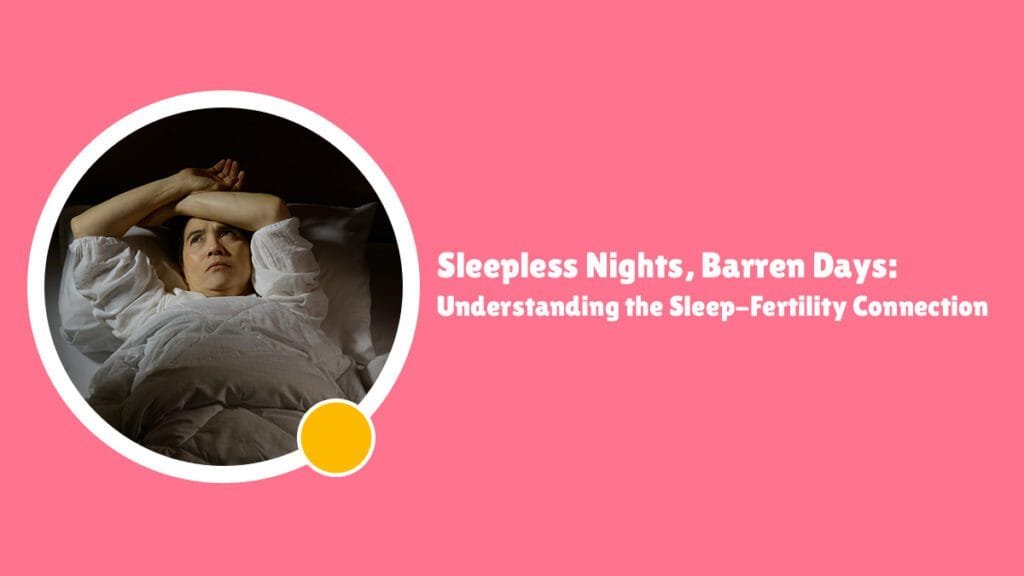Did you know that your sleep habits could be influencing your ability to conceive? While diet, exercise, and overall health often take the spotlight in fertility discussions, the role of sleep is often overlooked. However, mounting research shows that the quality and quantity of sleep play a significant role in reproductive health for both men and women.
How Does Sleep Affect Fertility?
Sleep regulates the hormones that are critical for reproduction. The body’s circadian rhythm, or internal clock, controls the release of hormones like melatonin and cortisol, which indirectly influence fertility. Additionally, sleep affects the levels of reproductive hormones such as:
Follicle-Stimulating Hormone (FSH): Essential for egg development and ovulation in women.
Testosterone: Critical for sperm production in men.
Luteinizing Hormone (LH): Triggers ovulation in women and supports testosterone production in men.
Poor sleep disrupts this delicate hormonal balance, potentially leading to irregular menstrual cycles, lower sperm quality, and reduced chances of conception.
The Impact of Too Little—or Too Much—Sleep
When it comes to fertility, both too little and too much sleep can be problematic. Studies suggest that sleeping fewer than 6 hours or more than 9 hours per night can negatively impact reproductive health.
In Women
Too Little Sleep: Chronic sleep deprivation can lead to irregular periods, increased stress levels, and a higher risk of conditions like polycystic ovary syndrome (PCOS), which is a common cause of infertility.
Too Much Sleep: Oversleeping can disrupt the natural hormone cycles necessary for ovulation, reducing the chances of conception.
In Men
Too Little Sleep: Short sleep duration has been linked to lower testosterone levels, decreased sperm count, and poor motility.
Too Much Sleep: Excessive sleep may indicate underlying health issues that could also impact fertility, such as obesity or hormonal imbalances.
Stress, Sleep, and Fertility: A Vicious Cycle
Sleep deprivation doesn’t just affect your hormones; it also increases stress. Elevated cortisol levels from stress can interfere with reproductive hormones, further complicating the journey to parenthood. Stress and sleep deprivation together create a vicious cycle, making it even harder to conceive.
Tips for Improving Sleep and Boosting Fertility
Maintain a Sleep Schedule: Go to bed and wake up at the same time every day, even on weekends.
Create a Sleep-Friendly Environment: Keep your bedroom dark, quiet, and cool. Limit screen time before bed to reduce blue light exposure.
Limit Caffeine and Alcohol: Both substances can interfere with your sleep quality and hormonal balance.
Practice Relaxation Techniques: Yoga, meditation, and deep breathing can help lower stress levels and improve sleep.
Conclusion
Sleep is more than just rest for your body—it’s a vital component of your reproductive health. By prioritizing quality sleep, you can improve your chances of conception while supporting your overall well-being.
So, are your sleep habits aligned with your fertility goals? A few simple changes to your nightly routine might make all the difference.




